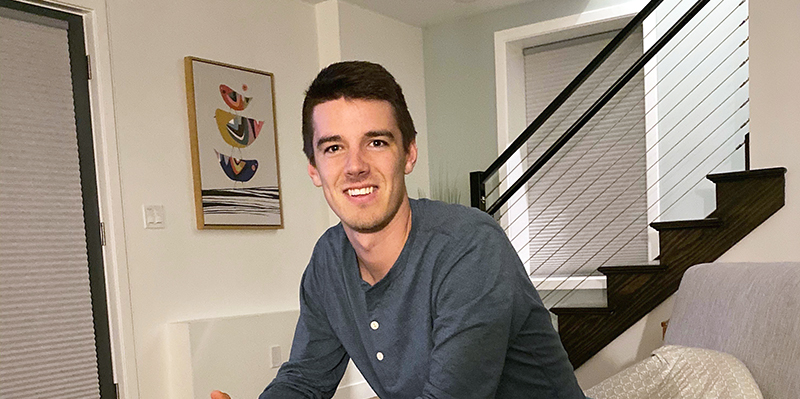Grief is our natural response to a meaningful loss. Some losses are heavier than others, yet they are all valid and real. It might be a change in daily activities, losing a role we have held, transitioning to an empty nest, divorce, retirement, or a death (among others).
Healthy grieving can be quite intense, especially during the acute period. When we mourn, we might shift between seemingly opposing sensations, like sorrow and relief (that suffering has ended), or guilt and pride (in regard to caregiving or decision-making), or we’re bereft one moment and in shock the next. We experience brain fog, exhaustion, and often have difficulty functioning normally (sleeping, eating, and socializing).
Thankfully, we are built to survive. We are resilient. And, by keeping in mind some helpful hallmarks of grief, we can generally weather the STORM:
Storytelling
Time
Open-mindedness/Open-heartedness
Recognizing Rumination
Meaning-Making
Here’s a more detailed list of the needs of those grieving in addition to supportive responses (in the case of a death) using “we” in all sections, because we each experience suffering and we can all care for one another.
Storytelling
As humans, we yearn to tell our story and have our story heard. Creating a narrative helps us grapple with trauma, come to terms with a drastic change, and make sense of what feels shocking and unbelievable. By speaking it aloud, we’re working through it versus stewing in it. We’re no longer alone in our thoughts.
Compassionate supporters can become storylisteners. We are receptive. We welcome silence. We are attentive and caring. We do not compare or contrast. We do not cloud the storyteller’s recount with our own “stuff.” We honor the other person’s perspective and needs. By gently inviting a mourner to share, we validate their interpretation and reactions.
Time
There’s no rushing grief. There’s no fast track. There’s no quick fix or easy cure. It takes time and patience to begin healing. Healing means we’re integrating the loss (into our psyche and identity), and adapting to our new reality.
Open-mindedness/Open-heartedness
For mourners, it’s important to practice self-compassion. In our thoughts, we can try to speak as we would to those we hold dearest. We can be kind and understanding as much as possible.
Compassionate supporters can sit with intensity. We witness emotional pain while remaining calm, centered, and neutral through mindfulness practices. We won’t judge, belittle, or dismiss. We won’t counsel, prescribe, or direct. We trust the process and we recognize that each person’s journey will be unique.
Recognizing Rumination
Sometimes we can become stuck in our grief process. Are certain moments haunting us? Are we feeling trapped in a negative loop that involves questioning ourselves, guilt, and/or shame? Are we struggling to get through each day? Are we feeling hopeless?
This excessive rumination is a sign a mourner needs more. If storytelling, journaling, or self-care practices aren’t alleviating the distress, then accessing professional mental health assistance is key. We can engage the broad expertise in our communities, including palliative care and hospice teams, as well as therapists who specialize in grief and support groups.
Compassionate supporters can remind the mourner: You didn’t know then what you know now. You didn’t have all the answers. The outcomes and pacing were mysterious. Hindsight can lead us to feel disempowered. Trusting that we did the best we could with what we had available can soften this despair.
Compassionate supporters can also ask how a mourner has gotten through tough times in the past: What did you lean on? What have been your sources of strength and support? What have you endured? And, how?
Meaning-Making
As we begin to integrate our grief, we may be able to find meaning in the experience. Upon reflection, we might realize there were beautiful moments shared. Perhaps we’ll feel grateful for the time we had together, as well as honored to have cared for our person and to have tended to their wishes. Maybe we’ll begin connecting with people in our family/community in new ways that feel very nourishing. Some of our realizations might also be rooted in spiritual/religious beliefs.
Additionally, we can begin to find meaning in the present and future, reawakening to joy and opportunities while carrying memories in our hearts and thoughts. This is a sign of post-traumatic growth following a loss. It’s also an encouraging sign of hope.
*This is not meant to be interpreted as medical or mental health advice. Its aim is to give voice to the needs of those grieving and provide practical ideas to those supporting.
This blog was originally posted on Contemplative Doula.
UVM’s End of Life Doula Professional Certificate program helps prepare participants to meet the growing demand for end of life support as people live longer and the course of the average dying process continues to become increasingly gradual and anticipated.


 By Francesca Arnoldy
By Francesca Arnoldy

